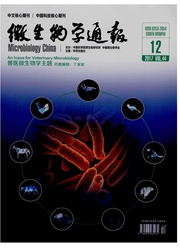

 中文摘要:
中文摘要:
细菌小RNA(small RNAs,sRNAs)是一类长度大约在40-400个核酸之间,不编码蛋白质的RNA,在细菌适应环境方面起重要的调节作用。当环境中温度、营养、外膜蛋白、p H、铁等条件改变时,sRNA常常通过连接双组分信号转导系统和调节蛋白,来传递压力信号并调节应激响应,其作用方式一般是通过碱基互补配对的方式与靶m RNA结合,从而调控靶m RNA的翻译和稳定性;或直接与靶标蛋白质结合,调节靶标蛋白质的生物活性。本文总结了细菌在多种环境压力下,sRNA的调控响应机制。
 英文摘要:
英文摘要:
Small RNAs in bacteria is a kind of 40-400 nt non-coding RNAs which play an important role in regulation while the environmental conditions (such as temperature, nutrition, outer membrane protein, pH and iron) change. Small RNAs generally transport environmental stress signals and stress responses through the two component signal system and regulatory proteins, and play functions via antisense base pairing with target mRNAs to regulate translation and degradation of target mRNA, or via directly binding proteins and then modulating their activities. This paper reviewed the regulation roles and the response mechanism of sRNAs in bacteria in different stress.
 同期刊论文项目
同期刊论文项目
 同项目期刊论文
同项目期刊论文
 期刊信息
期刊信息
